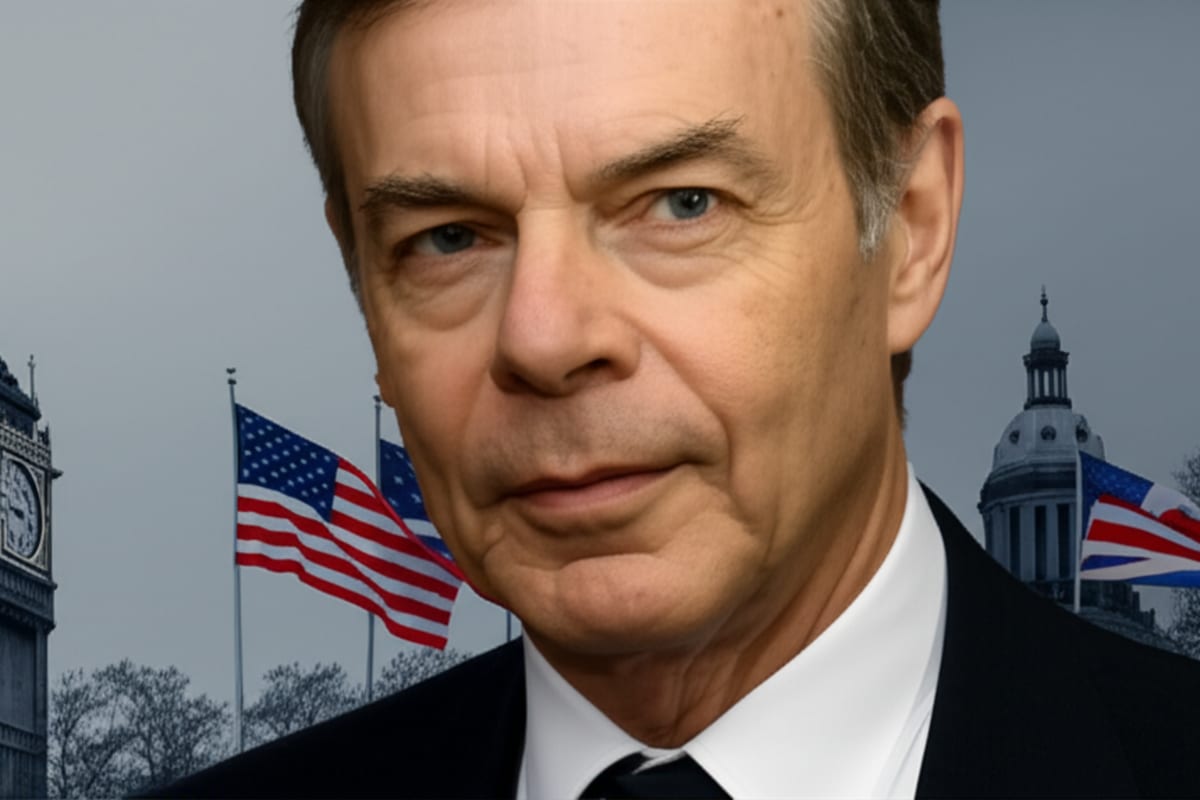Mandelson's US Ambassadorship: Epstein Links & UK-US Relations

The appointment of Peter Mandelson as the UK's ambassador to the United States in 2008 continues to stir debate, even years after his tenure concluded.
Background
The selection, made during a period of significant political transition in both nations, has been the subject of renewed scrutiny following recent remarks from a key figure involved in the decision-making process
His comments shed light on the intricate balancing act between political strategy and ethical considerations that characterized the decision
Alexander admitted that Mandelson's appointment would have been politically untenable had the full extent of his association with convicted sex offender Jeffrey Epstein been publicly known
This admission highlights the considerable risks involved in selecting individuals for high-profile diplomatic roles, where personal conduct can have profound repercussions on international relations
Alexander's Justification and Strategic Thinking
Alexander's justification for the appointment centered on the perceived need for an "unconventional ambassador" to navigate what was considered an "unconventional" US presidential administration under George W
Bush
The implication was that Mandelson's extensive political experience, well-established network, and reputation as a skilled negotiator were deemed vital assets in managing the complex relationship between the UK and the US during a period marked by significant geopolitical challenges, including the wars in Iraq and Afghanistan and the global financial crisis
However, this strategic calculus seemingly underestimated the potential for reputational damage stemming from Mandelson's ties to Epstein, a factor that would undoubtedly weigh heavily on any such appointment today
Southeast Asian Context
For readers in Southeast Asia, it is crucial to understand the distinct political and media environments that shape public perception of such events.
The level of public and media scrutiny surrounding high-level appointments often differs significantly from that in the UK
The revelation concerning Epstein's links to Mandelson adds another layer of complexity, given the global condemnation of his actions and the ongoing conversations about accountability for powerful individuals implicated in his crimes
Southeast Asian nations, grappling with their own issues of corruption and abuse of power, may find these events relevant in understanding the ethical dilemmas faced by even the most established political systems
The case underscores the importance of transparency and accountability in governance, irrespective of political expediency
Ethical Considerations and Due Diligence
The controversy surrounding Mandelson's appointment underscores the potential dangers of prioritizing political expediency over thorough due diligence.
The lack of complete transparency regarding Mandelson's relationship with Epstein raises critical questions about the selection processes for key diplomatic personnel
This issue has broader implications than just UK-US relations, highlighting the necessity of robust vetting procedures for all significant political appointments worldwide
It serves as a cautionary tale for governments globally, particularly in Southeast Asia, reminding them of the importance of rigorously examining candidates' backgrounds to prevent future reputational harm and ethical breaches
Thorough background checks, coupled with a commitment to transparency, are essential for maintaining public trust and ensuring the integrity of diplomatic relations
Geopolitical Implications
From a geopolitical perspective, the selection of an ambassador, particularly to a key ally like the United States, reveals the often-unseen dimensions of diplomacy
The choice signals priorities, values, and the desired nature of the bilateral relationship
The UK-US relationship remains exceptionally important, both economically and strategically
This relationship influences not only regional dynamics within Europe but also carries global implications, including for Southeast Asia, given the economic ties and security interests that many countries in the region share with both the UK and the US
Therefore, the choice of ambassador transcends domestic politics; it represents a strategic decision with potential international repercussions, impacting trade, security cooperation, and diplomatic alignment
Best Practices and Lessons Learned
The discussion surrounding Mandelson's appointment compels reflection on best practices for selecting high-profile diplomats.
More stringent vetting procedures, enhanced transparency, and a stronger emphasis on ethical standards are vital for safeguarding the integrity of diplomatic processes
Southeast Asian governments could benefit from reviewing their own appointment processes for similar high-level positions, drawing lessons from the UK experience to potentially improve their mechanisms for selecting and evaluating candidates
This includes establishing independent oversight bodies to scrutinize nominations and ensuring that ethical considerations are prioritized alongside political experience and connections
A commitment to good governance and ethical leadership is crucial for maintaining credibility on the international stage
Conclusion: A Global Call for Reform
In conclusion, Douglas Alexander's comments concerning Peter Mandelson's ambassadorship have ignited a necessary discussion about transparency, ethical considerations, and the complexities of international relations
While the UK's decision was made within a specific historical context, its implications resonate globally, urging a more rigorous and ethical approach to diplomatic appointments across all nations
The incident serves as a reminder that even the most seasoned political figures are subject to scrutiny, and that the integrity of diplomatic relations depends on a commitment to ethical conduct and transparency at all levels
